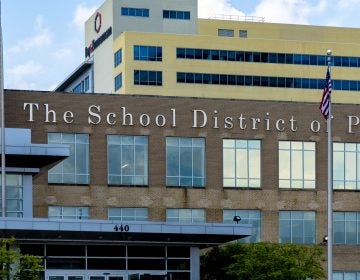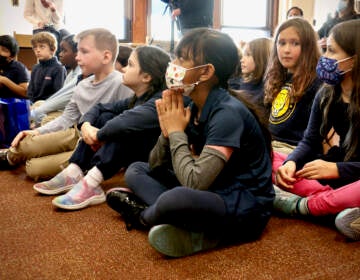‘Academics are the least of it’: How teachers and students stay connected in a pandemic
When schools shuttered suddenly, teachers faced a question: What do I do now? Many of them got creative to stay in-sync with students.
Listen 4:38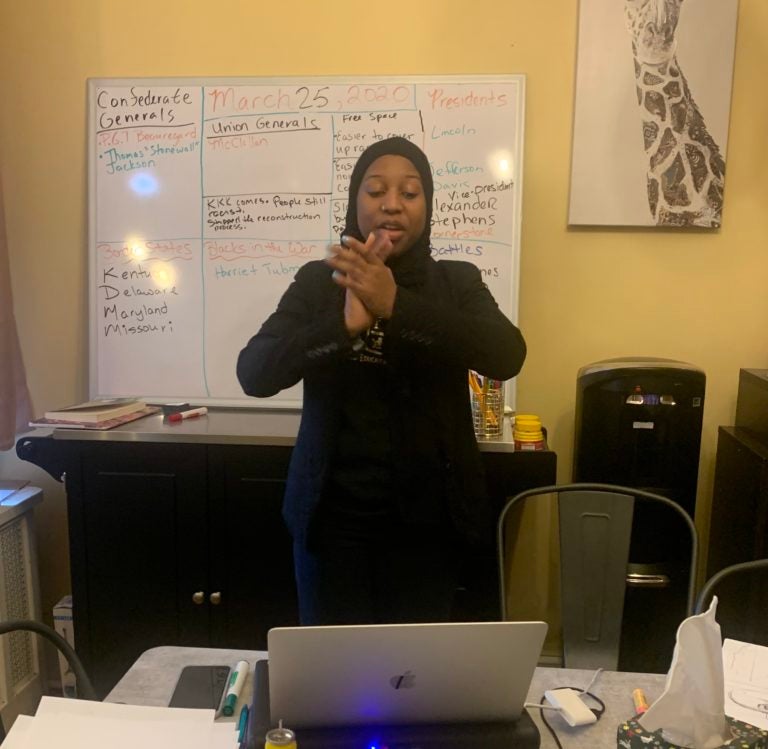
Northeast High School teacher Keziah Ridgeway teaching her online course. (Courtesy of Keziah Ridgeway)
If there’s such a thing as teacher’s intuition, Keziah Ridgeway has it.
Just before schools closed across the city, Ridgeway — who teaches at Northeast High School in Philadelphia — made a prophetic social media post.
If schools shut down, she wrote, she would offer a free, online course on African American history to any student interested.
Did she know at that point how she would provide a free class?
“No. Not at all,” Ridgeway said with a laugh. “I was like, ‘OK, I actually have to do this now.’”
So she dug around, brushed up on her tech skills, and by Monday was hosting a live class on Google Hangouts Meet — a tool she found through the School District of Philadelphia.
Four times a week, Ridgeway and her counterpart from Central High School meet with 40-to-60 students from schools across the city — and some even from out of state. The students don’t get any credit, and Ridgeway is under no obligation to teach.
But even without mandates, this little online community is thriving. There seems an earnest desire — on the part of students and teachers — to keep some semblance of normalcy alive amid the confusion and disruption caused by the coronavirus outbreak.
“When we are educating, we are doing so much more than that,” Ridgeway said. “And it’s so important for our students to see that we really care about them — that we’re invested in their future. And one way you do that is showing up.”
‘I gotta do something’
Ridgeway’s virtual class sprung up amid a statewide school closure order that’s forced teachers to face a basic question:
What do I do now?
That question has been somewhat complicated by shifting guidance from districts, states and the federal government about what teachers can or can’t legally do while schools are closed.
Many districts initially refrained from offering direct instruction online because of uneven access to technology among students and concerns about compliance with special education law. When the U.S. Department of Education urged districts to push forward with online instruction, that attitude started to change.
But step outside the red tape and the question still lingers. What next?
Many teachers feel compelled to stay connected with their students at a time when people have retreated from public life. And they’re finding new, creative ways to meet that challenge.
“Academics are the least of it,” said Leslie Greenberg, who teaches seventh- and eight-grade English at McCall School in Center City Philadelphia. “At this point, it’s mental health.”
Greenberg tears up thinking up the kind of physical and emotional isolation her students may feel right now.
To try busting through the gloom, she recruited teachers, parents and community members to pick a favorite book and then record themselves reading the first five minutes. It’s a technique she picked up from another teacher online.
She’s releasing the videos one day at a time with hopes they’ll inspire her students to pick up a book — or at least feel a little less alone. Maybe both.
“What helps me stay calm and centered, in a happy place, is to pick up a book,” she said. “I think the struggle right now is…I don’t know how much of that connection is happening for any aged kid at this point.”
Julius Brown, a music teacher at KIPP Philadelphia Elementary Academy in North Philadelphia, felt a void almost immediately after schools closed. During an emergency staff meeting, his mind drifted to the students in his classes.
“And I just kind of lost it and started to cry thinking about how much I miss them,” he said. “At that point I said, ‘I gotta do something.’”
He started a Facebook page called “Mr. Brown’s Sing A Long and Music Class” where he posts videos of him and his son, also a KIPP student, singing the types of songs he’d usually do in class.
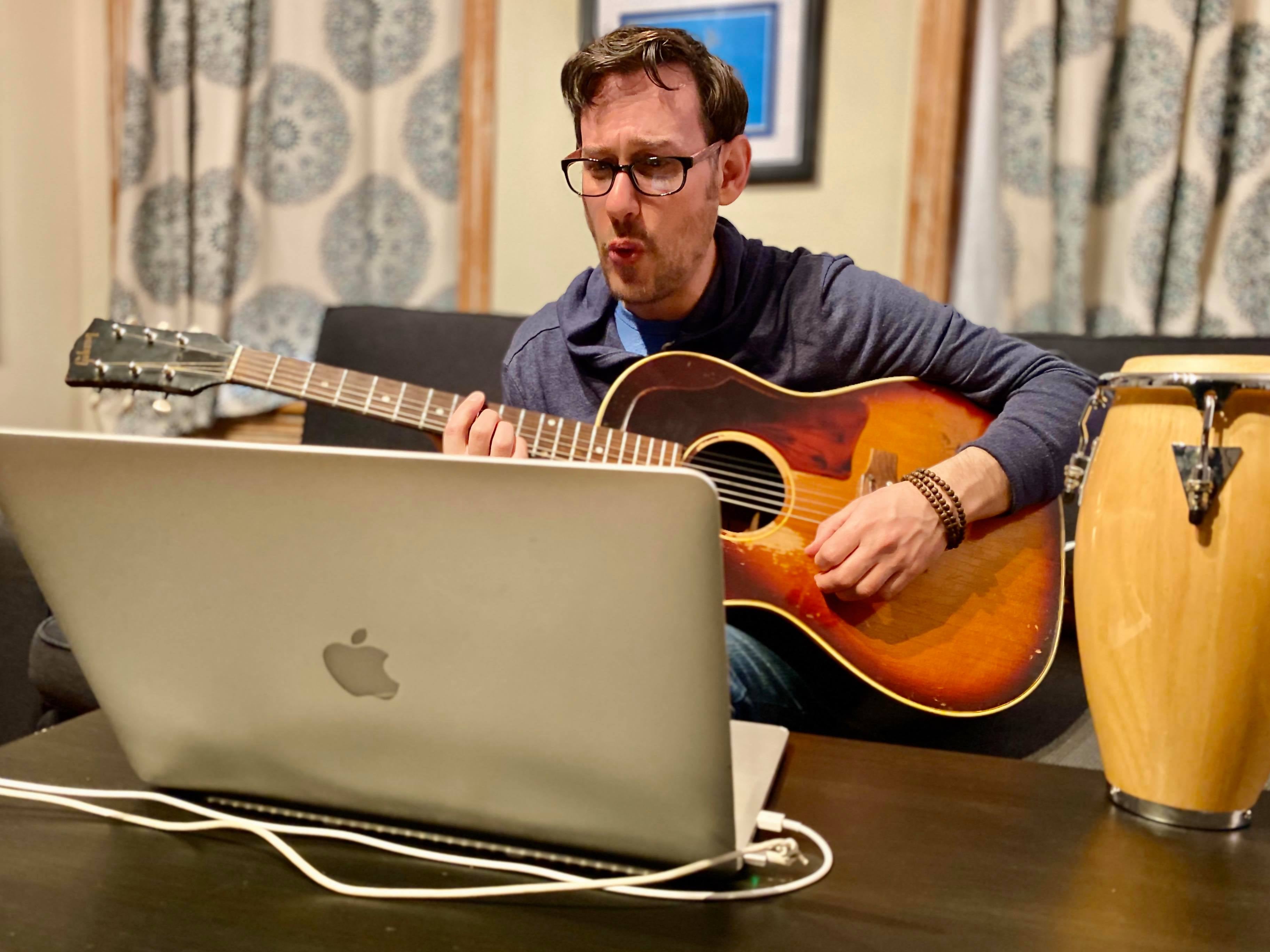
At noon on weekdays, Brown goes live with a 30-minute lesson. It’s open to anyone with a Facebook account, but aimed at his students.
“I know that I’m doing it for me, too,” he said. “Being a music teacher is who I am. That’s a central portion of my identity. To be able to stay in touch with that is keeping me grounded.”
Brown’s KIPP colleague, Aishia Stanley, tunes in with her own kids every day.
That sense of routine, she said, is what helps keep her and her children feeling normal. She’s developed a tight daily schedule for her family that she’s shared with her KIPP students.
“It’s all about routine, so we can all come out of this sane,” Stanley said.
‘It’s been really boring’
Routine and connection — teachers want to keep both of those things alive as school closures in Philadelphia are set to last until at least mid-April.
And it’s not just the connection between teacher and student. It’s the connection among students as well.
Keziah Ridgeway noticed that her virtual classroom has become its own little universe, with kids from around the city forging new bonds. Ridgeway had to cancel class one day because of other job obligations. When she logged on to remind students of the cancellation, she found a lot of them were still there in the virtual class — hanging out, chatting with each other, and even trying to lead a lesson themselves.
“They really log on to be a part of a community,” she said. “They continue to come because they want to continue to interact and have some sort of normalcy.”
Irma Fourrien, a 16-year-old from Northeast High School, said she looks forward to hopping on the computer every day for Ms. Ridgeway’s class.
“Not going to school — it really sounds like the best thing,” she said. “But, really, for the past few days, it’s been really boring.”
Music teacher Julius Brown wishes he could see his students bopping and singing along to his Facebook Live lessons. But the act of teaching gives him a little taste of what it’s like to be in a classroom.
“It helps me feel like I have some of that still,” Brown said. “But, yeah, it’s not enough.”
At the end of his lessons, Brown sings a goodbye with a simple refrain:
“Who’s singing at home,” he asks.
“Who’s singing at home?”
Brown can’t hear his kids answer, but he knows they’re out there.
WHYY is your source for fact-based, in-depth journalism and information. As a nonprofit organization, we rely on financial support from readers like you. Please give today.




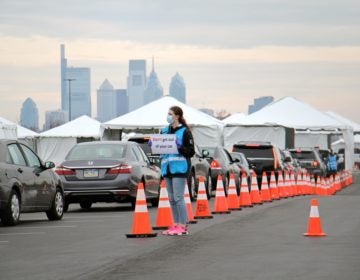
![CoronavirusPandemic_1024x512[1]](https://whyy.org/wp-content/uploads/2020/03/CoronavirusPandemic_1024x5121-300x150.jpg)
